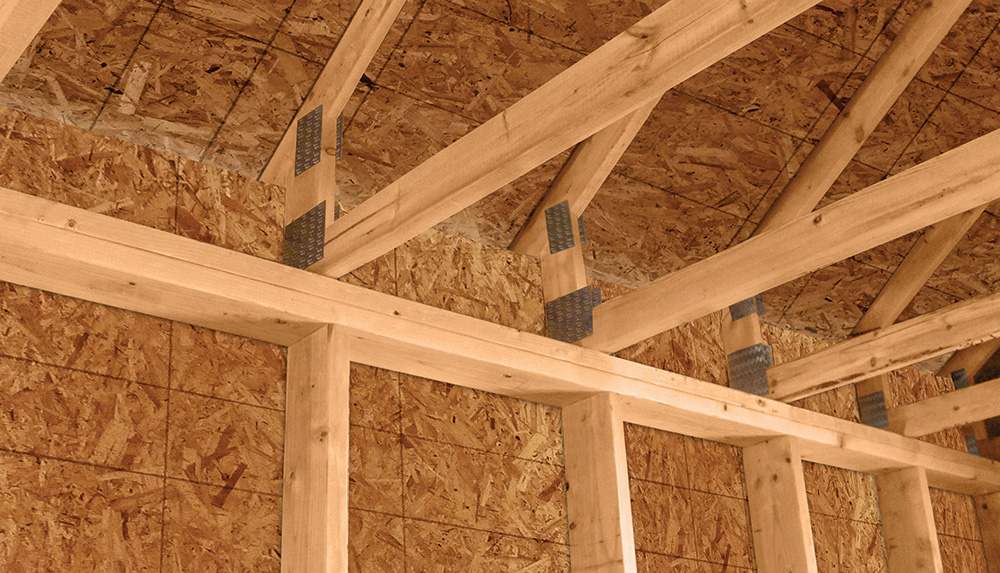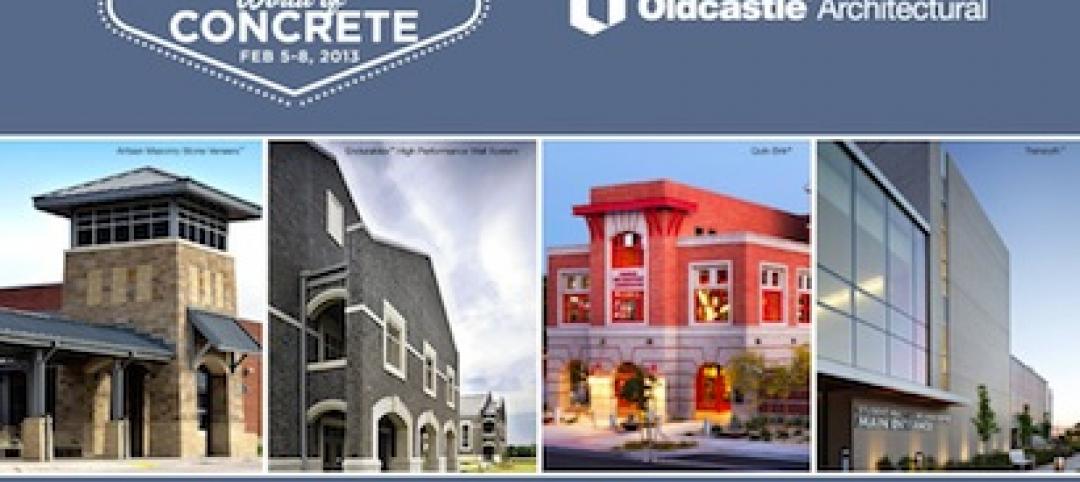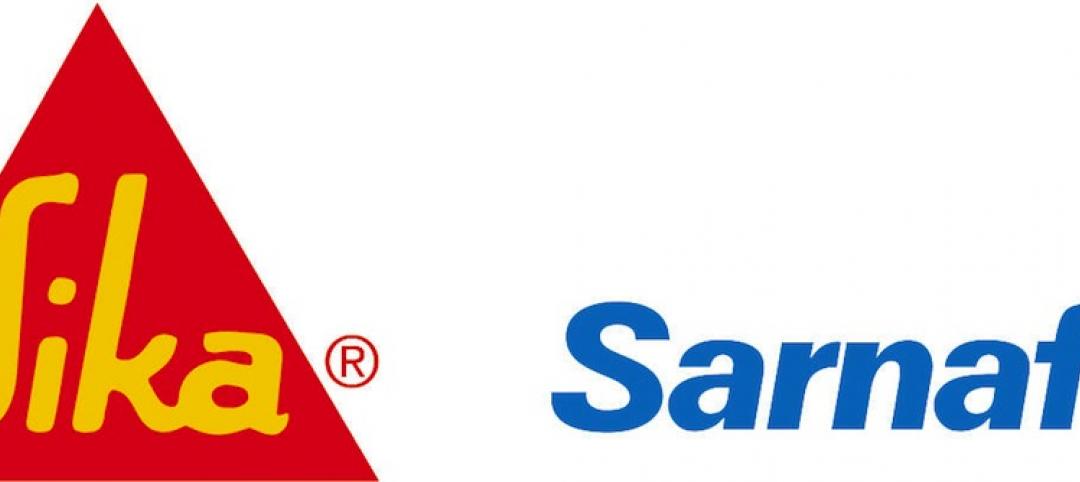A new guide describes how builders can increase the structural and energy performance of a home with a raised-heel truss construction system.
According to the publisher of the guide, APA – The Engineered Wood Association, building with raised-heel trusses results in savings for the builder and an energy-efficient, structurally superior residence for the homeowner. A raised-heel truss has a “heel” that extends up from the top of the wall and elevates the truss at the building’s edges. In other respects, it is identical to a conventional truss.
The guide says that raising the truss higher has two big advantages over typical truss construction: It simplifies attic ventilation, and it leaves ample room for insulation above exterior wall top plates. With the added space, the truss doesn’t compress attic insulation over the top plate and compromise its insulation value, a common weakness of conventional truss systems.
The energy code allows for use of less insulation for the entire ceiling system when a raised-heel truss system is used, allowing builders to reduce material costs and increase energy efficiency. Home Energy Rating (HERS) studies also indicate that with consistent ceiling insulation, APA says, the home maintains a more stable interior temperature that results in a more comfortable home and lower utility bills.
The system also features structural advantages, according to APA. Wall systems that combine raised-heel trusses with overlapping continuous plywood or oriented strand board (OSB) sheathing have better resistance to lateral forces produced by high winds or seismic activity than those fastened with conventional wall-to-truss connections.
Related Stories
| Jan 28, 2013
Oldcastle Architectural to exhibit at World of Concrete
Oldcastle Architectural, the largest producer of concrete masonry products in North America, will be in full force at the 2013 World of Concrete show February 5-8 in Las Vegas, Nev., featuring new product demonstrations, hands-on competitions and prizes.
| Jan 14, 2013
RAM Commercial Trucks named official truck of 2013 International Roofing Expo (IRE)
Covering all segments of the roofing industry, attendees are made up of commercial and residential contractors, builders, remodelers, building owners, facility managers, manufacturers, architects, engineers and other ancillary industry professionals.
| Nov 16, 2012
Sika Sarnafil Honored for Excellence in Green Roofing
Company receives Award of Excellence from Green Roofs for Healthy Cities for commitment to green roof architecture.
| Oct 13, 2012
October 2012: Product Spotlight
Carpeting collection; anti-slip synthetic roof underlayment; louver screens.
| Oct 11, 2012
Sika Sarnafil Launches Social Media Campaign and Contest
Roofing specialist Sika Sarnafil is launching its social media campaign with a virtual scavenger hunt, with 12 Amazon Kindles among the prizes.
| Sep 7, 2012
7 Do's and Don'ts for PV roof rack installation
As PVs grow in popularity, nearly half of all installations require roof rack systems. Our expert tells how to do the job right and protect your client’s roof.
| Aug 20, 2012
Protecting the artifacts at George H.W. Bush Presidential Library and Museum
Roof leaks threatened to damage artifacts and disturb a delicately controlled indoor environment at the George H.W. Bush Presidential Library and Museum.
| Jun 13, 2012
GAF’s Roving Truck promotion coming to your town soon
Professional roofing contractors or builders/remodelers in the U.S. can enter to win a Ford F-150 truck.
| Jun 1, 2012
New BD+C University Course on Insulated Metal Panels available
By completing this course, you earn 1.0 HSW/SD AIA Learning Units.













